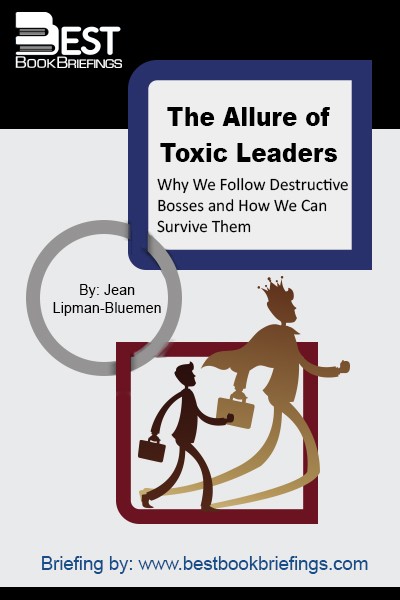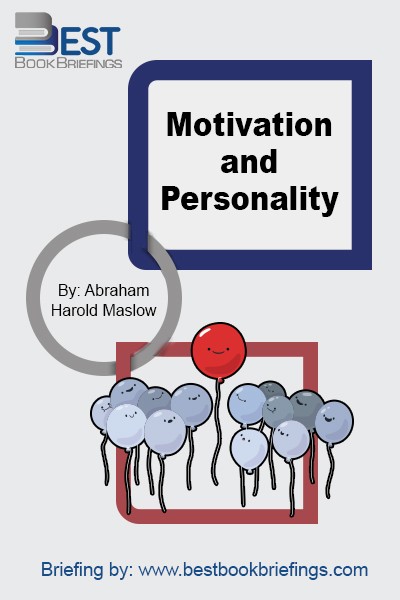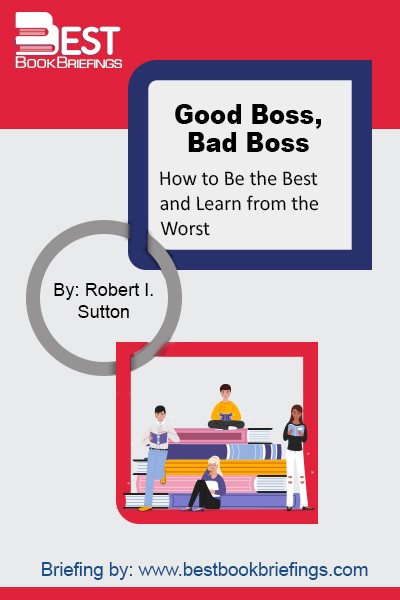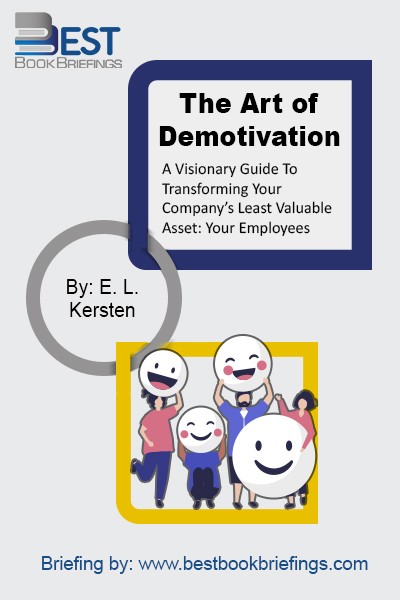The Art of Demotivation
A Visionary Guide To Transforming Your Company’s Least Valuable Asset: Your Employees
Number of pages: 242
Publisher: Despair
BBB Library: Leadership, Operations Management
ISBN: 9781892503404
Editorial Review
In the early 1960s, Douglas McGregor defined contrasting assumptions about the nature of humans in the workplace. These assumptions are the basis of Theory X and Theory Y teachings. Theory X assumes that people are lazy and will avoid work whenever possible. Theory Y, on the other hand, assumes that people are creative and enjoy work. Theory X holds the belief that people do not like work and that some kind of control must be exerted to get them to work effectively. These people require a rigidly managed environment, adding threats of disciplinary action as a primary source of motivation. It is also held that employees will only respond to monetary rewards as an incentive to perform above the level of that which is expected. In this radical book¾The Art of Demotivation¾a new version of Theory X is adopted to reflect the frustration caused by unproductive staff and the reaction of managers who don’t believe in motivation. It is an old theory, but still finds its advocates in the workplace of the 21st century. The book seems to echo Theory X, and even adds further disciplinary measures and logistics which are called “disconfirmation”, “indifference” and many more. These measures ¾ according to the author¾should be used to give a halt to arrogant employees and spur lazy ones to enforce productivity. Otherwise they are laid off to mitigate their negative effect on the organization. Whether we agree or disagree with the author, we believe that our readers have the right to read and heed this strange book.
Book Reviews
Books on Related Topics

Leaders worthy of the name understand and accept that they are appointed as much for their values and courage as for administrative skills or visionary outlook. They always keep their word to be as binding as a signed legal document. The climate created by leaders has more impact on employees than

Six Sigma black belts around the world have gotten good at improving four of the root causes of quality defects, machines, materials, measurement, and methods, but there is another root cause identified in the Six Sigma methodology: people. This root cause has largely been ignored. This is not too surprising because

Based on research performed by the prestigious Saratoga Institute, The 7 Hidden Reasons Employees Leave provides readers with real solutions for the costly problem of employee turnover. Readers will learn how to align employee expectations with the realities of the position, avoid job–person mismatches, and provide feedback and coaching that breed

When Motivation and Personality appeared in 1954 as the first complete statement of the new humanistic psychology, it quickly became established as a classic in the field. In this book, Maslow's work deals with the subject of the nature of human fulfillment and the significance of personal relationships, implementing a conceptualization

If you are a boss who wants to do great work, what can you do about it? Good Boss, Bad Boss is devoted to answering that question. Stanford Professor Robert Sutton weaves together the best psychological and management research with compelling stories and cases to reveal the mindset and moves of the best

This amoral, cunning, ruthless, and instructive book synthesizes the philosophies of Machiavelli, Sun Tzu, and Carl Von Clausewitz with the historical legacies of statesmen, warriors, seducers, and con men throughout the ages.



